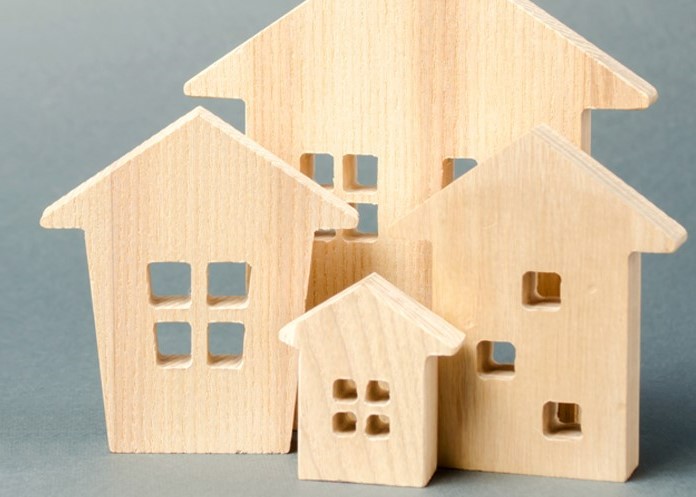AARP Hearing Center

The 2023 legislative session was a year for advancing housing legislation, with four bills making it to the end of the session. In addition, we found solutions to help prevent utility shut-offs during extreme heat events and modernized the state’s anti-robocalling law.
For more than a decade, AARP Washington has worked with housing advocates and legislators to reduce barriers to increase our housing supply and develop more affordable housing options. We are thrilled to report multiple wins in this arena, paving the way for more diverse housing options.
Measures passed this session promise to improve housing access and help older adults who may become more reliant on caregivers as they age. More housing options can help family members live with or near one another to support their loved ones. They can also help older adults have the care they need rather than being forced to spend down their assets to qualify for Medicaid.
“With a growing aging population, construction of a variety of housing options will become more important,” said Cathy MacCaul, AARP Washington Advocacy Director. “Currently, we have thousands of older adults who are house-rich but cash poor. Some would like to sell their home and buy something more affordable or accessible in their community, but in most cases, that type of housing does not exist,” she said.
House Bill 1337, sponsored by Rep. Mia Gregerson (D-SeaTac) and Rep. Andrew Barkis (R-Chehalis), approaches the housing crisis by reducing regulatory barriers to building accessory dwelling units, also called granny cottages or mother-in-law apartments. ADUs can fill many roles, like providing a place for an aging parent to live instead of a nursing home.
House Bill 1110, sponsored by Rep. Jessica Bateman (D-Olympia) and Rep. Andrew Barkis (R-Chehalis), will authorize mid-sized housing in cities with a population of 25,000 or more. Housing options like duplexes, fourplexes, and cottage courts can serve a broader range of people and families.
Both measures will allow for housing that is more affordable to various income levels and is critical to achieving the state's housing goals. They are common-sense, cost-effective approaches that will make good use of existing property throughout the state while easing the housing crisis.
“We’re experiencing a severe housing supply shortage and need more units,” said Rep. Andrew Barkis, R-Chehalis. “These bills create a new pathway for developers to cut through the red tape and build increased density primarily around public transit, schools, and parks to meet our housing needs. More housing options will increase competition and reduce both housing prices and rents, therefore helping our older population by striving to accommodate their unique needs,” he said
In addition to efforts to increase our housing supply, AARP fought for manufactured homeowners and their consumer rights. Manufactured homes provide a significant source of homeownership opportunities for Washington state residents. Due to an increase in the number of closures and conversions, even these housing opportunities are in peril. Many tenants who reside in these parks and communities are senior citizens or low-income households, who are already struggling to make ends meet.
Senate Bill 5198, sponsored by Sen. Noel Frame (D-Seattle), protects the residents of manufactured home parks from displacement. The legislation requires two years’ notice before the closure of a manufactured home park and gives residents of the park a fair chance to purchase the park themselves.
Rounding out our housing wins, House Bill 1355, sponsored by Rep. Sharon Wylie (D-Vancouver), expands access to property tax exemptions for senior citizens, disabled individuals, and qualifying veterans by increasing the maximum income thresholds. Eligibility to participate in the program is based on estimated county median household incomes. Previous legislation only recalculated the median household estimate every five years. The new legislation reduces that to every three years and requires the Department of Revenue to conduct a statewide awareness campaign to let Washingtonians know about updates to the program.
According to the Washington State Department of Health, 157 Washingtonians lost their lives during the 2021 heat wave. It was the deadliest weather-related event in Washington’s history. Tragically, 67% of those deaths were people 65 and older. Losing utility service is not a matter of convenience, it’s a matter of life and death. Access to electric fans, working refrigerators, and running water are essential during extreme heat waves.
Enter HB 1329, sponsored by Rep. Sharlett Mena (D-Tacoma), which prevents utility shut-offs during extreme heat. The bill prevents utilities and landlords from terminating water or electric service when the heat gets to a certain temperature, just as the law currently prevents shut-offs in very cold weather events.
Finally, AARP worked with Attorney General Bob Ferguson and Rep. Mari Leavitt, (D-University) on HB 1051 - The Robocall Scams Protection Act. This new bill strengthens and modernizes Washington’s anti-robocalling law by updating the definition of automatic dialing and making it a violation of the Consumer Protection Act to robocall someone on the Do Not Call Registry or knowingly facilitate illegal robocalls if you are a voice service provider.
Providing protections for consumers regarding utility disconnection and unwanted robocalls was a significant win. We are particularly heartened to see so much work done on housing during the 2023 legislative session and applaud a truly bipartisan effort to make it to this point. It is the culmination of several years of challenging work and compromise to help older Washingtonians and their families choose their own housing options as they age.































































